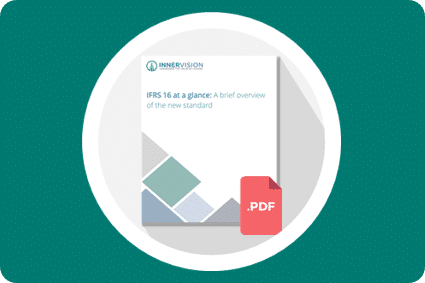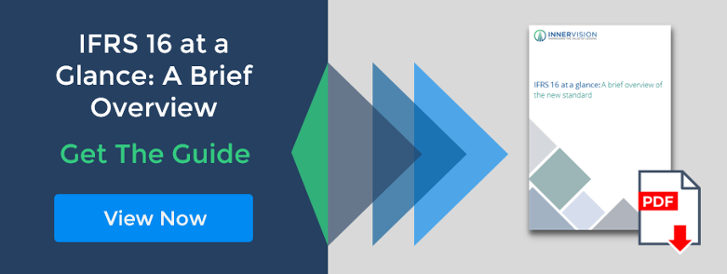IFRS 16 At A Glance: A Brief Overview
Updated 18th May 2021 | 2 min read Published 2nd February 2016

Early 2016, the IASB published the biggest change to lease accounting in 30 years. The long awaited and much debated IFRS 16 Leases was shared with the masses January 13th 2016.
The standard has received mixed reviews, and as many of us release a sigh of relief that the standard has finally been finalised, we are reminded that now the real challenges begin as we go from theory to practice.
Businesses are becoming more aware that they need to begin their preparations now. This is why we’ve put together this concise breakdown of the main changes arising from the publication of IFRS 16.
Whether you need a short, information packed overview to share with your colleagues or you can’t quite bring yourself round to reading all 100+ pages of the official lease accounting standard, this double-sided document is just what you need to gain a good understanding of how IFRS 16 will impact your business’s leasing activity.
The new lease accounting project aims to reform the way leases are accounted for and how they are represented on balance sheet. The joint project initially aimed to converge US GAAP and IFRS accounting regulations for leases and although the Financial Accounting Standards Board and the International Accounting Standards Board have opted for slightly different treatments, generally speaking, both final standards will require operating leases to be capitalised on balance sheet, recognising a right of use asset and liability.
Although companies still have time until they will need to implement the new lease accounting standards, if they have not yet begun preparations, they risk failing to achieve compliance.
As part of the transition, businesses will need to review their current active leases to gain a better idea of what leases will be impacted, how this will affect their financial statements and what they need to do to ensure they are fully compliant before the effective date of implementation.
There are many options available to help lessees make the most out of the transition and to reduce the cost, hassle and time needed to gather and report on all active leases. Whether you invest in specialised lease management software or outsource to leasing experts, the important thing for lessees to do now is assess the potential impact lease accounting will have on their financial statements.
To find out more about how lease accounting may affect your business or how lease accounting software can help you drive savings and automate comparative lease accounting reports, feel free to talk to one of our leasing experts to find our more.


